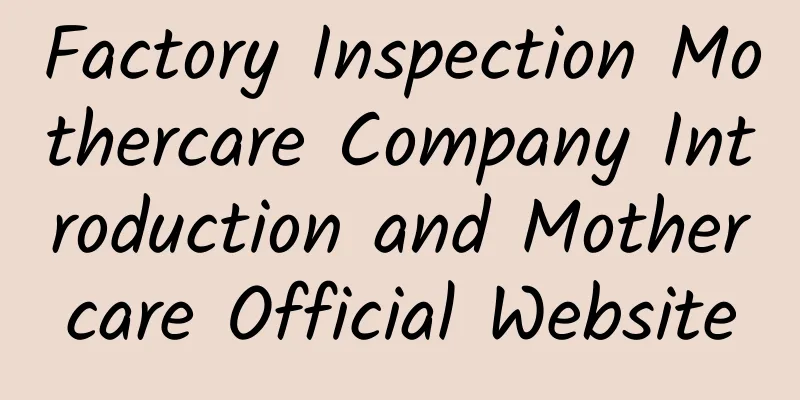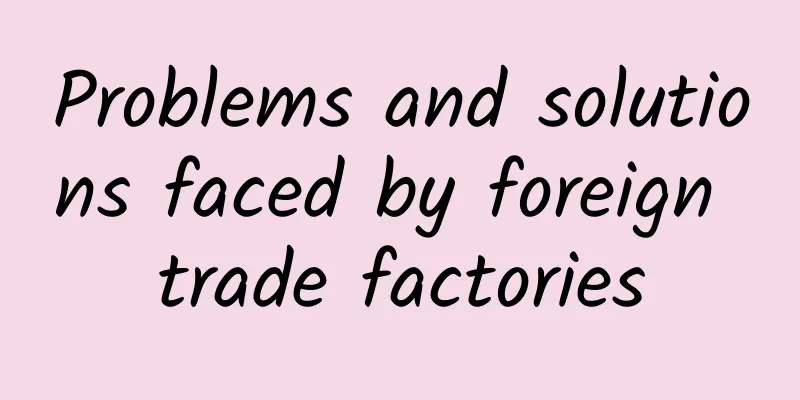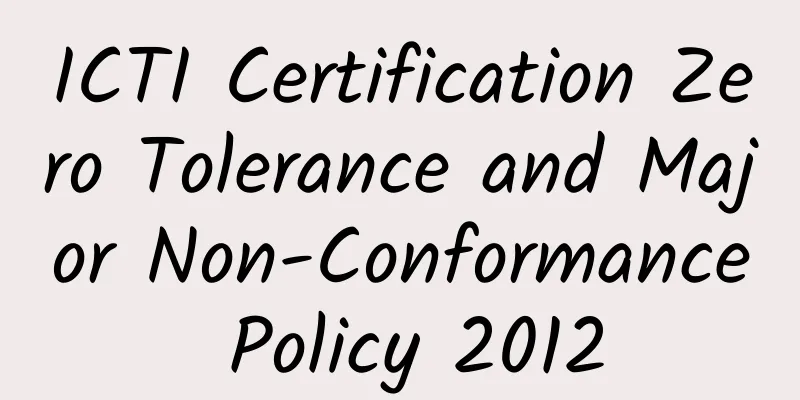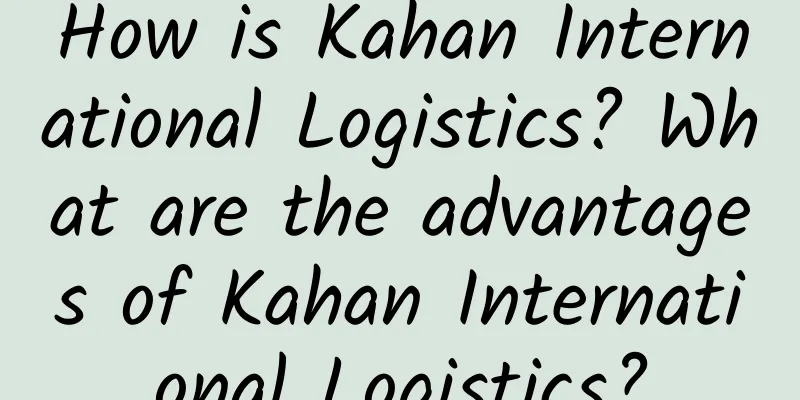Zhejiang Province Work Safety Regulations
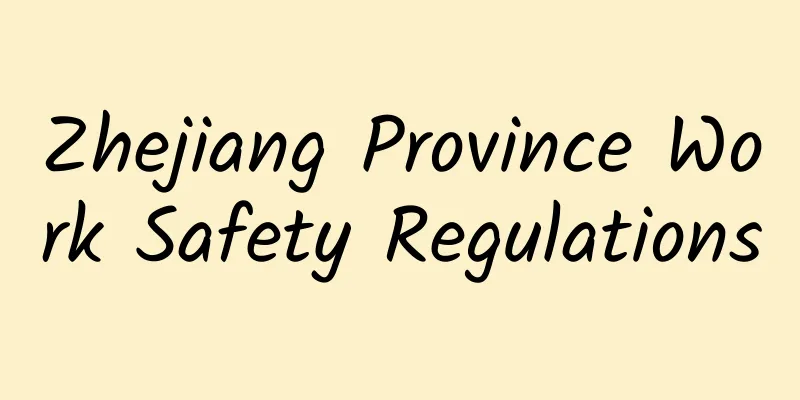
|
Adopted at the 26th meeting of the Standing Committee of the 10th Zhejiang Provincial People's Congress on July 28, 2006 Chapter I General Provisions Article 1 These Regulations are formulated in accordance with the "Safety Production Law of the People's Republic of China" (hereinafter referred to as the "Safety Production Law") and other relevant laws and regulations, and in combination with the actual situation of this province, in order to strengthen the supervision and management of production safety, prevent and reduce production safety accidents, protect the life, health and property safety of the people, promote the coordinated development of the economy and society, and maintain social stability. Article 2 This Regulation shall apply to production safety and related supervision and management of enterprises, institutions and individual economic organizations (hereinafter referred to as production and operation units) engaged in production and operation activities within the administrative region of this province; if relevant laws and regulations have other provisions on fire safety and road traffic safety, railway traffic safety, water traffic safety, civil aviation safety, construction project safety, special equipment safety, occupational health and safety, etc., their provisions shall apply. Article 3 In production safety management, we must adhere to the principles of safety first, prevention first, and comprehensive management. Article 4 Production and operation units are the responsible entities for production safety in their units and must strengthen production safety management in accordance with the law, establish and improve a production safety responsibility system, improve production safety conditions, and ensure production safety. The main person in charge of a production and operation unit shall be fully responsible for the production safety work of the unit, and other persons in charge shall be responsible for the production safety work within their respective responsibilities. Article 5 Employees of production and operation units have the right to obtain safety protection in accordance with the law and shall perform their obligations in terms of safety in production. Article 6 People's governments at all levels are responsible for production safety work within their administrative areas. People's governments at or above the county level shall strengthen leadership over work on production safety, incorporate work on production safety into the national economic and social development plan, organize the establishment and improvement of a production safety supervision management and emergency rescue system; establish and improve a target responsibility system for production safety work and a system for administrative accountability, urge and support relevant departments in performing their production safety supervision management duties in accordance with the law, and promptly coordinate and resolve major issues in production safety work. Township people's governments and street offices shall establish or determine production safety supervision and management agencies, assign production safety supervision and management personnel, and strengthen production safety supervision and management work in accordance with the needs of production safety supervision and management work. Article 7 The work safety supervision and management departments of people's governments at or above the county level (hereinafter referred to as work safety supervision and management departments) shall implement comprehensive supervision and management of work safety work within their administrative regions in accordance with the provisions of laws, regulations and these Regulations, supervise, guide and coordinate the work safety supervision and management work of other relevant departments within their administrative regions, and supervise and manage the work safety work of production and operation units within their administrative regions. The relevant departments of the people's governments at or above the county level shall supervise and manage production safety work within their respective responsibilities in accordance with the provisions of laws, regulations and these Regulations. Article 8 Trade unions shall organize employees to participate in the democratic management and democratic supervision of their unit’s work on production safety in accordance with the law, and safeguard the employees’ legitimate rights and interests in production safety. Article 9 Industry associations shall, based on the characteristics of the industry, actively carry out publicity and education on production safety, provide guidance on the production safety work of the industry, provide services such as production safety management and technical consultation, and strengthen industry self-discipline. Article 10 People's governments at all levels shall include special funds for production safety in the fiscal budget. Special funds for production safety must be used for specific purposes and may not be misappropriated. Audit departments shall strengthen audit supervision over the use of special funds for production safety. Article 11 People's governments at all levels, relevant departments, and production and operation units shall earnestly strengthen the construction of safety culture, adopt various forms to carry out publicity and education on production safety laws, regulations, rules and production safety knowledge, enhance the production safety awareness of the whole society and employees, and improve the ability of production and operation units and employees to prevent accidents. News, publishing, radio, film, television, and the Internet and other units should carry out public welfare publicity on production safety, fulfill their obligations to publicize and educate the public on production safety, and strengthen public opinion supervision on violations of production safety laws. Article 12 People's governments at all levels and relevant departments shall encourage and support research on production safety science and technology and the promotion and application of advanced production safety technologies to improve production safety levels. Units and individuals that have made outstanding achievements in improving production safety conditions and preventing production safety accidents shall be commended and rewarded. Chapter II Safety Production Guarantee Measures Article 13 Production and operation units shall comply with the following production safety requirements when engaging in production and operation activities: (1) Mines, construction units and production and operation units of dangerous chemicals, fireworks and firecrackers, civilian blasting equipment, etc. shall obtain administrative licenses for work safety in accordance with the law; (2) The production and operation sites, facilities and equipment comply with the production safety requirements stipulated in laws, regulations, rules and relevant national standards and industry standards; (3) Establish and improve the safety production responsibility system, formulate and improve safety production rules and regulations and safety operating procedures; (4) ensuring the investment of funds for production safety; (5) Setting up obvious safety warning signs at production and operation sites and relevant facilities and equipment where there are dangerous factors; (6) Providing employees with labor protection articles that meet national or industry standards; (7) Establishing a production safety management organization or assigning production safety management personnel in accordance with the law; (8) The principal person in charge and production safety management personnel have production safety knowledge and management capabilities corresponding to the production and operation activities engaged in by the unit; (IX) Employees have passed the safety production education and training, and special operation personnel have obtained the special operation operation qualification certificate in accordance with the law; (10) Other requirements stipulated by laws, regulations and rules. Article 14 The principal person in charge of a production and operation unit shall bear the following responsibilities for production safety in the unit: 1. Establishing, improving and organizing the implementation of a safety production responsibility system; (2) Organize the formulation and supervise the implementation of production safety rules and regulations and safety operating procedures; (3) ensuring the effective implementation of production safety investment and the withdrawal and use of production safety funds; (4) Organizing inspections of production safety work and promptly eliminating potential production safety accident hazards; (5) Organizing the formulation and implementation of emergency rescue plans for production safety accidents; (6) timely and truthfully report production safety accidents, organize emergency rescue, cooperate in the investigation of production safety accidents, and must not leave their posts during the investigation and handling of accidents; (7) Reporting the production safety situation to the workers' congress, workers' representative congress, shareholders' meeting or general meeting of shareholders, and accepting supervision of production safety work by the trade union, employees and shareholders; (8) Other responsibilities prescribed by laws, regulations and rules. Article 15 The production safety responsibility system of a production and operation unit shall clearly define the responsible persons, responsibilities and assessment requirements at all levels and positions of the unit, and form a production safety responsibility system that includes all employees and all production and operation activities. The production safety rules and regulations of a production and operation unit shall clearly state the following: (1) Regular meetings on production safety; (2) education and training on production safety; (3) Production safety inspection and rectification of potential accidents; (iv) Maintenance, care and testing of facilities and equipment; (5) On-site management of dangerous operations; (6) Management of labor protection articles; (VII) Responsibilities for production safety and rewards and penalties; (8) Management of production safety records; (IX) Emergency rescue measures; (10) Reporting, investigating and handling production safety accidents; (XI) Other contents to ensure safe production. Article 16 Production and operation units shall ensure the capital investment necessary to meet the safety production conditions and guarantee and improve the safety production conditions. Production and operation units with higher risks, such as mines, dangerous chemicals, fireworks and firecrackers, civilian blasting equipment, construction, transportation, and offshore operations, shall set aside production safety fees and pay risk deposits in accordance with national and provincial regulations. Article 17 Mines, units that produce, operate, store dangerous goods, or units that use dangerous goods in quantities that constitute a major hazard source shall set up a production safety management organization or assign full-time production safety management personnel; if the number of employees exceeds 50, no fewer than two full-time production safety management personnel shall be assigned. For production and operation units other than those specified in the preceding paragraph, if the number of employees is less than 50, full-time or part-time production safety management personnel shall be assigned; if the number of employees is more than 50, no less than one full-time production safety management personnel shall be assigned; if the number of employees is more than 300, a production safety management organization shall be established or no less than two full-time production safety management personnel shall be assigned. Production and operation units are encouraged to entrust production safety intermediary service agencies with corresponding qualifications or engineering and technical personnel and full-time production safety management personnel with relevant professional and technical qualifications to provide production safety management services. Article 18 The production safety management organization and production safety management personnel of a production and operation unit shall perform the following duties: (1) Implement the laws, regulations, rules and relevant national and industry standards on production safety, and participate in the production safety decision-making of the unit; (2) Participate in the formulation of and supervise the implementation of production safety rules and regulations and safety operating procedures; (3) Carry out safety inspections, and stop and investigate illegal commands, illegal operations, and violations of labor discipline; (iv) Upon discovery of potential accident hazards, urge relevant business departments and personnel to rectify them in a timely manner and report to the person in charge of the unit; (5) Carry out publicity, education and training on production safety, and promote advanced production safety technologies and experiences; (6) Participate in the safety performance testing of the unit's production processes, technologies, and equipment and the formulation of accident prevention measures; (VII) Participate in the review of safety facilities for new construction, reconstruction and expansion projects of the unit, and supervise the distribution and use of labor protection equipment; (8) Participate in organizing the formulation and drill of the unit's emergency response plan; (IX) Assist in the investigation and handling of production safety accidents, and collect statistics and analyses of the accidents; (10) Other production safety work required by laws, regulations and rules. Article 19 The principal persons in charge of mines, units producing, operating or storing dangerous goods, units using quantities of dangerous goods that constitute a major source of danger, and full-time production safety management personnel of production and operation units must be qualified in training and assessment by the department responsible for production safety supervision and management before they can take up their posts. No fees may be charged for the assessment. The principal person in charge of a production and operation unit other than those specified in the preceding paragraph and part-time production safety management personnel shall possess production safety knowledge and management capabilities corresponding to the production and operation activities of the unit and shall be qualified after training by the department responsible for production safety supervision and management. The funds required for training the principal person in charge of a production and operation unit shall be included in the budget of the department responsible for training and shall be guaranteed by the finance at the same level. Provincial departments responsible for safety supervision and management should formulate and publish a training and assessment outline for safety knowledge and management capabilities in accordance with the principle of hierarchical and classified management, coordinate training plans, standardize training behaviors, improve training quality, and avoid duplicate training and assessments. Article 20 Production and operation units shall provide safety education and training to employees, and inform them of the dangerous factors, preventive measures and emergency measures in the workplace and work positions. Employees who have not passed the safety education and training shall not be allowed to work. Production and operation units shall establish files on production safety education and training for employees. The records of production safety education and training shall be signed by the employees themselves. Article 21 Employees of production and business units shall enjoy the following rights: (1) requiring production and business operation units to handle work-related injury insurance and other insurance in accordance with the law; (2) Participating in production safety education and training; (3) Understand the hazardous factors in the workplace and work positions and the preventive and emergency measures, and obtain labor protection supplies that meet national regulations and standards; (4) To make suggestions on the unit's work safety and to criticize, report and accuse existing problems; (5) Refuse to follow illegal instructions or orders to carry out risky operations, and when an emergency situation that directly endangers personal safety is discovered, stop the operation or take possible emergency measures before evacuating the work site; (6) demanding compensation according to law after suffering damage due to a production safety accident; (VII) Other rights provided for by laws and regulations. Departments and trade unions with safety supervision and management responsibilities shall safeguard the safety rights of employees as they are entitled to according to law and promptly stop production and operation units from infringing upon the safety rights of employees. Article 22 Employees of production and business units shall perform the following obligations: (1) Comply with the unit's production safety rules and regulations and safety operating procedures, obey management, and correctly wear and use labor protection equipment; (2) receiving education and training on production safety; (3) timely report potential accidents and unsafe factors; (4) Participating in accident rescue and relief; (V) Other obligations prescribed by laws and regulations. Article 23 The safety facilities of new, rebuilt and expanded engineering projects (hereinafter referred to as construction projects) of production and business units must be designed, constructed, put into production and used at the same time as the main project. The investment in safety facilities shall be included in the budget estimate of the construction project. The safety facilities of construction projects shall be designed in accordance with the national and provincial safety standards and design specifications, and submitted to the department responsible for production safety supervision and management for review; the safety facilities of construction projects shall be constructed in accordance with the approved design plan; before the completion of the construction project and its commissioning and use, the safety facilities shall be accepted by the department responsible for production safety supervision and management; if they are not accepted, they shall not be put into production and use. The specific measures shall be formulated by the provincial production safety supervision and management department together with relevant departments, and implemented after approval by the provincial people's government. Article 24 Production and operation units shall adopt the following monitoring measures for major hazardous sources: 1. Establishing operation management files and monitoring the operation status throughout the process; (2) Regularly inspect the safety status of major hazardous sources; (3) Inspect and test facilities and equipment in accordance with national regulations and conduct regular safety assessments; (iv) Setting up safety warning signs at conspicuous locations of major hazard sources; (V) Formulate emergency rescue plans and organize emergency rescue drills regularly. Production and operation units shall promptly report major hazards to the local department responsible for production safety supervision and management, and report the implementation of major hazard monitoring measures at least once every six months. Article 25 The safety distance between the production, living and storage areas of a production and operation unit and the surrounding protection safety distance shall comply with national standards or industry standards. Workshops, shops and warehouses for the production, operation, storage and use of dangerous goods shall not be located in the same building as employee dormitories and shall maintain a safe distance from employee dormitories. Article 26 If a production and operation unit subcontracts or leases production and operation projects, sites, or equipment to other units or individuals, it shall sign a production safety management agreement and perform the responsibility of unified management. If the contractor or lessor finds that the contractor or lessee has committed any illegal production safety behavior, they shall promptly dissuade the contractor or lessee and report the situation to the department responsible for production safety supervision and management. Article 27 Production and operation units must provide employees with labor protection equipment that meets national standards or industry standards, and educate and supervise employees to use them correctly. It is prohibited to replace the provision of labor protection equipment with cash or other items. When purchasing labor protection products, production and operation units should request product inspection certificates and keep them on file. Article 28 When a production and business operation unit conducts dangerous operations such as blasting, equipment (component) hoisting and disassembly, high-altitude suspension and confined space operations, it shall comply with the following requirements: (1) Formulate construction plans and safe operating procedures, adopt safety precautions, and set up safe areas at the work site; (2) The construction shall be carried out by units and professionals with corresponding qualifications; (3) Appointing a dedicated person to conduct unified on-site command; (4) There are production safety management personnel to conduct on-site supervision. Article 29: Production and operation units using mechanical stamping equipment must install and use safety protection devices in accordance with national and provincial regulations and standard requirements, and must entrust inspection and testing agencies with corresponding qualifications to conduct regular inspection and testing of the safety performance of mechanical stamping equipment. Employees have the right to stop operating when they find that the mechanical stamping equipment they are operating does not comply with the provisions of the preceding paragraph. Article 30 Production and operation units must participate in work-related injury insurance in accordance with the law and pay work-related injury insurance premiums for their employees. Construction units shall, in accordance with the law, arrange personal accident insurance for personnel engaged in dangerous work at the construction site. Production and operation units engaged in industries such as mining, dangerous chemicals, fireworks and firecrackers, civilian blasting equipment, transportation, and high-altitude suspension operations are encouraged to purchase personal accident insurance and employer liability insurance; production and operation units in places with a large number of people are encouraged to purchase public liability insurance. Article 31 Trade unions have the right to supervise and put forward opinions on the simultaneous design, construction, production and use of safety facilities and main projects of construction projects. Trade unions have the right to demand correction of any violation of production safety laws and regulations or infringement upon the legitimate rights and interests of employees by production and operation units; they have the right to propose solutions when they find that production and operation units give illegal commands, force employees to perform risky operations, or discover potential accidents, and the production and operation units must promptly study and respond; when they find situations that endanger the lives and safety of employees, they have the right to suggest to the production and operation units that they organize the employees to evacuate dangerous places, and the production and operation units must take immediate action. The trade union has the right to participate in accident investigations in accordance with the law, put forward handling opinions to the relevant departments, and demand that the relevant personnel be held accountable. Article 32 Intermediary production safety service institutions that undertake safety evaluation, inspection, testing, certification, consulting, safety training and other work safety intermediary service activities shall obtain the corresponding qualifications in accordance with the provisions of laws and administrative regulations, engage in work safety intermediary service activities within the business scope specified in the qualification certificate, and be responsible for the results of the intermediary services. Chapter III Supervision and Management of Work Safety Article 33 People's governments at or above the county level and departments responsible for production safety supervision and management shall implement administrative licensing for matters related to production safety in accordance with the Administrative Licensing Law of the People's Republic of China and other relevant laws and regulations. Article 34 The people's governments at or above the county level shall, based on the production safety situation within their administrative regions, organize relevant departments to conduct strict inspections in accordance with their division of responsibilities on production and operation units within their administrative regions that are prone to major production safety accidents; if potential accident hazards are discovered, they shall be dealt with in a timely manner. Article 35. Departments with safety supervision and management responsibilities shall cooperate with each other and conduct joint inspections during supervision and inspection. If it is necessary to conduct separate inspections, they shall exchange information. If they find that existing safety issues should be handled by other relevant departments, they shall promptly transfer the issues to other relevant departments and make records for reference. The departments receiving the transfer shall handle them in a timely manner. The department responsible for production safety supervision and management shall order the immediate elimination of accident hazards discovered during inspections; if safety cannot be guaranteed before or during the elimination of major accident hazards, the production and operation units shall be ordered to evacuate personnel from the danger zone and to temporarily suspend production and operations or stop using corresponding facilities and equipment; after the major accident hazards have been eliminated, production and operations and the use of corresponding facilities and equipment may be resumed only after review and approval. Article 36 Township people's governments and sub-district offices shall supervise and manage the implementation of production safety laws, regulations, rules and national standards and industry standards by production and business units within their respective jurisdictions, and shall exercise the following powers: (1) Entering a production and business operation unit to conduct inspections, reviewing relevant materials, and obtaining information from relevant units and personnel; (2) Any illegal production safety behavior discovered during the inspection shall be corrected on the spot or required to be rectified within a time limit; (3) For any act discovered during the inspection that should be subject to administrative punishment according to law, the department responsible for production safety supervision and management shall be advised to make an administrative punishment decision according to law, and the department responsible for production safety supervision and management shall handle and respond to it in a timely manner; (iv) Any potential accident hazards discovered during the inspection shall be ordered to be eliminated; if the production and operation unit refuses to make corrections, the matter shall be reported to the department responsible for production safety supervision and management; (V) For major accident hazards discovered during the inspection, necessary emergency measures shall be taken while ordering their elimination, and the relevant departments responsible for production safety supervision and management shall be notified. Township people's governments and street offices shall cooperate with and assist departments with safety supervision and management responsibilities in carrying out safety supervision and inspection. Article 37 Production safety supervision and inspection shall not hinder the normal production and operation activities of the inspected units. The time, place, content, problems found and their handling of the supervision and inspection shall be recorded in writing and kept on file for future reference. Article 38 If a residents' committee or villagers' committee finds that a production and operation unit in its area has potential accident hazards or violates safety production laws, it shall discourage them and report it to the local people's government or relevant departments. Article 39: Production and storage sites for dangerous goods such as hazardous chemicals, radioactive materials, fireworks and firecrackers, and civilian blasting equipment shall not be set up within a safe distance from residential areas (buildings), schools, hospitals, stations, docks, markets and other places with large crowds of people; if such sites have already been set up, the people's government at or above the county level shall take measures to eliminate potential safety hazards. Residential areas (buildings), schools, hospitals, stations, docks, markets and other places with large crowds of people shall not be built within the safe distance of production and storage areas of dangerous goods such as hazardous chemicals, radioactive materials, fireworks and firecrackers, and civilian blasting equipment; if such places have already been built, the people's government at or above the county level shall take measures to eliminate potential safety hazards. Article 40 The provincial work safety supervision and administration department shall, in conjunction with relevant departments, establish a province-wide major hazard source information supervision system and implement three-level supervision of major hazard sources at the provincial, municipal and county (municipal and district) levels. The department responsible for production safety supervision and management shall organize experts to conduct comprehensive analysis and assessment of the status of major hazard sources based on major hazard source supervision information and other scientific data, and take corresponding supervision measures. Article 41 The department responsible for production safety supervision and management shall establish a reporting system and register the reports received. After investigation and verification, the accepted reports shall be put into written form; if rectification measures need to be implemented, they shall be signed by the relevant person in charge and supervised for implementation. Departments responsible for production safety supervision and management shall keep the identity of whistleblowers confidential. If a production and operation unit is found to have retaliated against a whistleblower, it shall be promptly investigated and dealt with in accordance with the law. Personnel who have made meritorious contributions in reporting major accident hazards or illegal production safety behaviors shall be rewarded. Article 42. Departments with production safety supervision and management responsibilities shall establish a reporting system for production safety violations, publicize major violations and their handling by production and operation units and their main responsible persons, and production safety intermediary service agencies in relevant media, and record the relevant circumstances in the credit information of the unit. Chapter 4 Emergency rescue and investigation and handling of production safety accidents Article 43 People’s governments at all levels shall organize relevant departments to formulate emergency rescue plans for major and serious production safety accidents within their administrative regions and establish an emergency rescue system. Article 44 Production and operation units shall formulate emergency rescue plans for their units and promptly report the plans to the local department responsible for production safety supervision and management for filing. Departments responsible for production safety supervision and management should strengthen guidance on the formulation of emergency rescue plans for production and operation units, so that the emergency rescue plans of production and operation units are linked with the emergency rescue plans of local people's governments. Article 45 After a production safety accident occurs in a production and operation unit, the person in charge of the unit shall immediately activate the emergency rescue plan, take effective measures to organize rescue, prevent the accident from expanding, reduce casualties and property losses, and immediately report it truthfully to the local people's government and relevant departments in accordance with relevant national and provincial regulations. It is not allowed to conceal, falsely report or delay reporting, and it is not allowed to deliberately destroy the accident scene or relevant evidence. If it is necessary to move the accident scene for reasons such as rescuing people or preventing the accident from expanding, markings and written records should be made, and important traces and relevant physical evidence at the scene should be properly preserved and kept. If new circumstances arise after the accident report, they should be reported in a timely manner. Article 46 After receiving an accident report, the local people's government and relevant departments shall immediately report the accident situation, organize accident rescue and conduct accident investigation in accordance with relevant national and provincial regulations. If a serious or particularly serious production safety accident occurs, the local people's government shall organize relevant departments to rush to the scene in a timely manner to organize rescue. The local public security and judicial organs shall take effective measures in accordance with the law to prevent the relevant responsible persons from escaping or transferring or concealing their property. Article 47 The investigation and handling of accidents shall be based on facts, respect science, promptly and accurately determine the cause of the accident, ascertain the nature and responsibility of the accident, summarize the lessons learned from the accident, propose corrective measures, and make recommendations on the handling of those responsible for the accident. Any unit or individual shall cooperate with the accident investigation and shall not obstruct or interfere with the legal investigation of the accident, the determination of accident responsibility, or the handling of responsible persons. The specific methods for accident investigation and handling shall be implemented in accordance with relevant national and provincial regulations. Article 48 The production safety supervision and management department shall regularly compile statistics and analyze the production safety accidents occurring within its administrative area and announce them to the public. Chapter V Legal Liability Article 49 If an act violates the provisions of these Regulations and there are penalty provisions in the Work Safety Law and other laws and regulations, such provisions shall apply. Article 50 Personnel of the people's governments at all levels and departments responsible for production safety supervision and management shall be given administrative sanctions in accordance with the law if any of the following circumstances occur; if a crime is constituted, criminal liability shall be pursued in accordance with the law: (1) Approving, permitting, issuing licenses, or accepting production and business operations that do not meet the statutory requirements; (2) Failing to stop or deal with illegal production safety activities that should be stopped or dealt with in accordance with the law; (3) Failure to take appropriate measures for discovered potential accident hazards; (4) Failing to organize rescue in accordance with regulations when a production safety accident occurs; (5) Concealing, failing to report, making false reports or delaying reporting of production safety accidents; (6) obstructing or interfering with the investigation and handling of a production safety accident or the investigation of responsibility for a production safety accident; (VII) Participating in production and business activities in violation of regulations; (8) Any other act of abuse of power, dereliction of duty, or favoritism or fraud. The pursuit of administrative liability for extremely serious production safety accidents shall be carried out in accordance with relevant national regulations. Article 51 Where a production or business operation unit violates the provisions of these Regulations and commits any of the following acts, it shall be ordered to make corrections within a time limit; if it fails to make corrections within the time limit, it shall be ordered to suspend production or business for rectification and may be fined not less than RMB 2,000 yuan but not more than RMB 20,000 yuan: (1) Failure to establish a production safety responsibility system, formulate and implement production safety rules and regulations and safety operating procedures in accordance with relevant regulations; (2) Failure to allocate production safety expenses or pay risk mortgage funds in accordance with regulations; (3) Failure to establish a production safety management organization or assign production safety management personnel in accordance with relevant regulations; (4) The principal person in charge and full-time production safety management personnel of a production and operation unit have not passed the assessment in accordance with the regulations. Article 52 Where a production and business operation unit violates the provisions of Article 23 of these Regulations and commits any of the following acts, it shall be ordered to make corrections within a time limit; if it fails to make corrections within the time limit, it shall be ordered to stop construction or suspend production and business for rectification, and may be fined not less than RMB 5,000 yuan but not more than RMB 50,000 yuan: (1) The construction project does not have a safety facility design or the safety facility design has not been submitted for review and approval in accordance with regulations; (2) The construction unit of a construction project fails to carry out construction in accordance with the approved design of safety facilities; (3) Before the construction project is completed and put into production or use, the safety facilities have not been accepted and passed. Article 53 If a production and operation unit violates the provisions of the first paragraph of Article 27 of these Regulations and uses cash or other items to replace labor protection articles, it shall be ordered to correct the violation within a time limit; if it fails to correct the violation within the time limit, it shall be fined not less than RMB 2,000 yuan but not more than RMB 20,000 yuan. Article 54 If a production and business operation unit that conducts dangerous operations such as high-altitude suspension and confined space operations violates the provisions of Article 28 of these Regulations, it shall be ordered to correct the violation within a time limit; if it fails to correct the violation within the time limit, it shall be ordered to suspend production and business for rectification, and may be fined not less than RMB 20,000 yuan but not more than RMB 100,000 yuan. Article 55 If a production and operation unit violates the provisions of the first paragraph of Article 29 of these Regulations and fails to install and use safety protection devices for mechanical stamping equipment in accordance with the regulations or fails to conduct regular inspections and tests on mechanical stamping equipment in accordance with the regulations, it shall be ordered to correct the problem within a time limit; if it fails to correct the problem within the time limit, it shall be ordered to suspend production and business for rectification and may be fined not less than RMB 5,000 and not more than RMB 50,000. Article 56 If a production and operation unit still fails to meet the conditions for safe production after suspension of production and business for rectification, the department responsible for safety supervision and management shall report to the people's government at or above the county level in accordance with the law and request it to be closed down within the authority prescribed by the state; the relevant departments shall revoke its relevant licenses in accordance with the law. Article 57 The administrative penalties prescribed in these Regulations shall be decided by the work safety supervision and administration departments at or above the county level; if relevant laws and regulations have other provisions on the decision-making authority for administrative penalties, such provisions shall prevail. Work safety supervision and management departments at or above the county level may entrust work safety supervision and management agencies that meet the conditions stipulated in Article 19 of the Administrative Penalty Law of the People's Republic of China to implement administrative penalties. Chapter VI Supplementary Provisions Article 58 The following terms used in these Regulations have the following meanings: Dangerous goods refer to flammable and explosive items, dangerous chemicals, radioactive items, etc. that can endanger personal safety and property safety. A major hazard source refers to a unit (including places and facilities) that produces, transports, uses or stores hazardous substances on a long-term or temporary basis, and the quantity of hazardous substances is equal to or exceeds the critical amount. Major accident hazards refer to unsafe conditions in production and operation workplaces, equipment, and facilities, unsafe human behavior, and management defects that may lead to major accidents or major economic losses. |
<<: The EU has included 10 substances of very high concern (SVHC) in its list
>>: Three-point standard of ISO9000 health inspection content
Recommend
(Mothercare factory audit standards) Mothercare accepts ETI standard audit
Mothercare undergoes ETI audit Advantages of impl...
Misunderstandings about the ownership of certification work when implementing ISO9000 certification in small and medium-sized enterprises
Misunderstandings about the ownership of certific...
FSC forest certification - a hot topic of international concern.
As a new mechanism to promote sustainable forest ...
Otto--Germany's second largest e-commerce company
What is Otto? Otto has 9 million registered users...
How is Shenzhen Qianhai Topology Information Technology? What services does Shenzhen Qianhai Topology Information Technology provide?
Shenzhen Qianhai Topology Information Technology ...
Instagram marketing skills! Become a warm baby in the eyes of customers~
The term Ins marketing is not unfamiliar to peopl...
How to upload pictures on eBay?
You must upload at least one picture when listing...
What is Daraz? What are the entry requirements for Daraz?
What is Daraz? Daraz is Pakistan's largest B2...
What are the ways to promote on eBay?
eBay promotion method 1: Promote listings (commis...
Overgrowth--covering the entire traffic of Amazon platform
What is Overgrowth? Overgrowth is a brand and soc...
ICTI-Wage and Working Hours Guidelines and Implementation Plan
11. Introduction Page 2 1.2. Salary Page 2 2.a. I...
Ann Taylor Quality Inspection Document List
Ann Taylor Quality Inspection Document List 1. Bu...
Analysis on opening a store on Lazada, the Southeast Asian version of Amazon
It is no exaggeration to say that Southeast Asia ...
Pearl River Delta toy companies downsizing and transformation model
Some labor-intensive enterprises in the Pearl Riv...
What is AsinKing? What are the functions of AsinKing?
What is AsinKing? AsinKing is a one-stop Amazon b...
